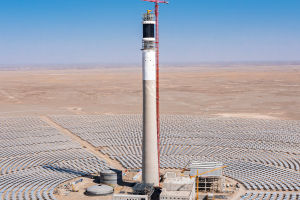Hello Lykkers! If you’ve ever found yourself wondering whether solar panels give off radiation, you’re not alone. It’s a common concern, especially as more people make the switch to renewable energy. The word “radiation” can sound alarming, and it often sparks images of hazardous materials or health risks.
But let’s break things down clearly—because the truth about solar photovoltaic (PV) power generation is far less dramatic than it might sound. Let’s start with what solar PV power actually is.
What Is Solar Photovoltaic Power?
Solar photovoltaic (PV) systems are the solar panels you see on rooftops or installed across open fields. These panels convert sunlight directly into electricity using a material—usually silicon—that reacts to light.
This process is called the photovoltaic effect, and it doesn’t involve burning fuel, moving mechanical parts, or emitting gases. It's a clean, quiet, and sustainable method of generating power. So, where does radiation come into the picture?
Understanding Radiation: What Does It Really Mean?
The term "radiation" simply refers to energy that travels through space. It comes in many forms, and not all of them are harmful. Broadly, radiation is divided into two types: ionizing and non-ionizing.
- Ionizing radiation is the kind that has enough energy to remove tightly bound electrons from atoms. This is the type of radiation you find in X-rays or nuclear power, and yes, it can be harmful in high doses.
- Non-ionizing radiation, on the other hand, is all around us. It includes visible light, infrared, microwaves, and radio waves. These types of radiation do not have enough energy to damage DNA or cells in your body.
Solar PV panels are powered by sunlight—specifically the visible and infrared light spectrum—which is non-ionizing radiation. In other words, the same kind of radiation you encounter every time you step outside on a sunny day.
Do Solar Panels Emit Radiation?
The short answer is yes, but only very low levels of non-ionizing electromagnetic fields (EMFs). These are the same types of fields emitted by devices you likely use daily—like smartphones, Wi-Fi routers, laptops, and even your microwave oven.
Solar PV systems, especially the inverters that convert DC electricity into AC for household use, generate extremely low-frequency EMFs. However, these levels are far below the limits established by international health and safety guidelines. According to numerous studies and health organizations, there is no scientific evidence to suggest that the EMFs from solar PV systems pose any health risk to humans.
And to be crystal clear: solar panels contain no radioactive materials and do not emit any ionizing radiation.
Safe, Clean, and Here to Stay
To sum it all up: solar PV power generation does involve radiation—but it’s the harmless, non-ionizing kind that we live with every day. Solar energy is not only clean and sustainable, but also completely safe when it comes to radiation exposure.
So if you’ve been on the fence about solar because of radiation worries, you can set those fears aside. Solar PV systems are one of the safest and smartest energy solutions out there—for your home, your family, and the planet. Stay curious, Lykkers—and keep asking great questions.


